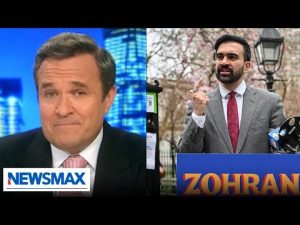In the realm of international politics, few organizations stand as tall as NATO. Recently, discussions surrounding NATO defense spending and global military conflicts have reignited debates about the alliance’s future, especially concerning American involvement. The question now buzzes louder than a bee in a flower garden: Can Europe defend itself without Uncle Sam’s help? NATO’s Secretary General, while pondering this, suggests that while Europe might manage on its own theoretically, it’s far better to keep the transatlantic relationship robust. With global tensions rising, cooperation is vital to maintaining peace across the Atlantic, the Arctic, and beyond.
At the heart of these discussions lies the looming threat of Russia, whose aggressive moves, particularly in Ukraine, are sending shivers down the spines of NATO members. Add to that a raucous North Korea and a rapidly expanding China, focused on building a military that rivals that of the United States, and one could say the world feels a bit like a game of Jenga—any wrong move could topple the entire tower. Should China decide to take daring action against Taiwan, there’s a high chance that the Kremlin’s Putin would call on his partner-in-crime to add some chaos to the mix. Therefore, the interconnected nature of international affairs makes it clear that the allies must stick together like glue.
But what does this mean for Ukraine? Well, there have been murmurs that the U.S. might reconsider its role in supporting Ukraine’s membership in NATO. Some speculate this shift is an attempt to be more accommodating to former President Trump’s perspective on NATO membership for Ukraine. However, the Secretary General assures that Ukraine’s path to NATO is still very much alive. The debate and support for Ukraine’s defense continue, and while different opinions exist, the foundational commitment to NATO remains strong, emphasizing that Europe should shoulder more of the financial burden. After all, it’s only fair that everyone contributes to the pot.
The ongoing discourse also touches on the need for NATO allies to meet their defense spending commitments. American taxpayers have been concerned about shouldering an uneven share of the financial load. They might feel like they’re fronting the bill for everyone at a restaurant, while other diners sit comfortably, sipping their drinks. Fortunately, the Secretary General assures that NATO allies, including Europe and Canada, are stepping up to match U.S. spending, thereby alleviating some pressure from the American taxpayer. This shift is not just a matter of fairness, but also a timely response to the menacing reality of the Russian threat.
In the midst of these complex debates, one can’t ignore the specter of Iran. The Secretary General indicated confidence in the U.S.’s surgical approach to dealing with Iran’s nuclear ambitions and sees it as a key moment in showcasing American military strength. It’s like playing chess where each move is calculated and strategic, aimed at ensuring peace. As tensions unfold, it’s imperative that the U.S. maintains its involved posture within NATO, navigating the intricacies of international relations while simultaneously standing firm in its defense commitments. In a world full of shifting alliances and potential conflicts, the importance of NATO, and the role of the U.S. within it, has never been clearer. So, it seems that while Europe may be capable of pulling its weight, it’s best to keep the alliance strong and united, for a secure future rests on the collaborative efforts of all involved.







